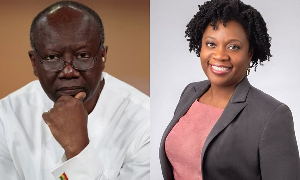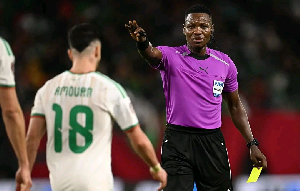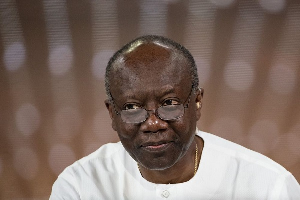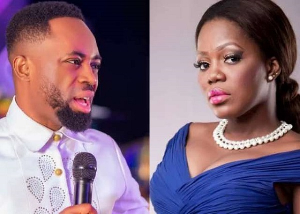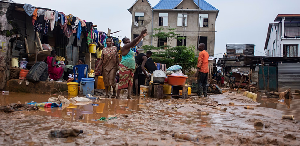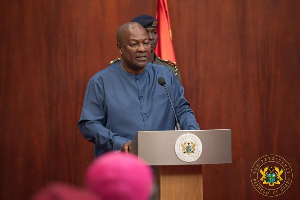‘the man adjusting his lens to take just the right frame of her suffering might just as well be a predator, another vulture on the scene,’ –St. Petersburg Times in Florida
I have followed with extreme worry, recent threats to publish some nude photographs of an unnamed budding Ghanaian songbird at an Accra entertainment event.
Though, I have not seen the photograph in contention to gauge its nature and possibly the circumstances leading to its capture, there are still some issues worrying enough for commentary especially in defense of the unnamed beleaguered songstress.
I find this threat as very disturbing but hasten to commend the swiftness of the Obour-led Musicians Union of Ghana Association (MUSIGA) to quell the publication when it sought by a release to confirm the speculation and literally beg media houses not to publish what it described as “an unfortunate costume mishap,”
This situation reminds me of the Kevin Carter photograph of a Sudanese child dying of famine and starvation that won the Pulitzer Prize for feature photography in 1994.
Cater, on an assignment to take pictures of rebel activities took to photographing an exhausted, starving and helpless little girl as a vulture approached to possibly devour her. This photograph raised a litany of comments after it was first published on the front of the New York Times in March 1993.
One such instructive comment is the St. Petersburg Times in Florida report as cited by www.wikipedia.org that, "The man adjusting his lens to take just the right frame of her suffering, might just as well be a predator, another vulture on the scene."
In this context, I think that, the threat to publish the pictures have been unnecessary given the explanation of “costume mishap” provided by MUSIGA. If there is any failure of discretion, I will rather we discuss the motives and motivation of the photo journalist who set out to adjust his lens to take just the right frame of her nudity as though that was the only scene that his readers wanted and needed to know.
The rules and ethics of Journalism do not preclude Photo-journalism. Sontag, Susan. (2003) Regarding the Pain of Others, London: Penguin provides some insight when she says that, “the hunt for more dramatic images drives the photographic enterprise’. To survive competition, journalists strive to outdo each other in an attempt to mirror the struggles of others.
I respectfully think that, these are not the kind of photographs that mirror the challenges of the music industry in Ghana that makes it a near impossibility for many an artiste to make platinum sales of works and sell a wealthy patronage of performances.
To my mind however, the publication of this “costume mishap” will raise some issues of ethical, moral and legal considerations.
Ethically, journalists are expected to be guided by the Harm Limitation principle that requires that we should exercise a little compassion for those likely to be affected adversely by the publication of what we have learned or the photographs we have taken. It will thus be unethical to publish a photograph that will potentially slaughter the blistering career of this songstress especially when we seem not to understand what led to that “costume mishap”.
Morality does not lend to individual discretions rather accepted societal norm or behavior. It does not come to me as standard behavior to take a photograph of a private part of an artiste busily performing on stage for whatever reason.
Morality connotes fairness and behaving in ways considered by most people as correct and honest. Like the criticism of Kevin Carter that he was morally flawed for taking the image of the Sudanese girl, it is morally flawed to take a picture of a nude performer on stage where you have not in a position to understand the preceding circumstances.
Legally, the 1992 constitution guarantees the freedom and independence of the media freedom providing no control on the editorial discretions of media managers.
In spite of this blanket checkbook, the 1992 Constitution of Ghana per Article 164 of the constitution however, provides that the freedom is “subject to laws that are reasonably required in the interest of national security, public order, public morality and for the purpose of protecting the reputations, rights and freedoms of other persons”.
Journalists have occasionally compromised on this national standard for practice and have in course of our work permitted very volatile faces and comments on our space, disregarded public order and morality and most of all battered with delight the reputations of other persons.
The bigger issue to me is to question the thinking and action of the photo-journalist. I will not and does not consider him a hero in this unfolding drama.
I rest my case.
By
Kwame Koduah Atuahene
Lawyer & Media Critique
Kwameatuahene.wordpress.com
Opinions of Wednesday, 11 January 2012
Columnist: Atuahene, Kwame Koduah


